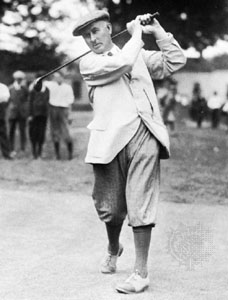Today’s Epistle reading --
13Οὐ θέλομεν δὲ ὑμᾶς ἀγνοεῖν, ἀδελφοί, περὶ τῶν κοιμωμένων, ἵνα μὴ λυπῆσθε καθὼς καὶ οἱ λοιποὶ οἱ μὴ ἔχοντες ἐλπίδα.
14εἰ γὰρ πιστεύομεν ὅτι Ἰησοῦς ἀπέθανεν καὶ ἀνέστη, οὕτως καὶ ὁ θεὸς τοὺς κοιμηθέντας διὰ τοῦ Ἰησοῦ ἄξει σὺν αὐτῷ.
15Τοῦτο γὰρ ὑμῖν λέγομεν ἐν λόγῳ κυρίου, ὅτι ἡμεῖς οἱ ζῶντες οἱ περιλειπόμενοι εἰς τὴν παρουσίαν τοῦ κυρίου οὐ μὴ φθάσωμεν τοὺς κοιμηθέντας·
16ὅτι αὐτὸς ὁ κύριος ἐν κελεύσματι, ἐν φωνῇ ἀρχαγγέλου καὶ ἐν σάλπιγγι θεοῦ, καταβήσεται ἀπ’ οὐρανοῦ καὶ οἱ νεκροὶ ἐν Χριστῷ ἀναστήσονται πρῶτον,
17ἔπειτα ἡμεῖς οἱ ζῶντες οἱ περιλειπόμενοι ἅμα σὺν αὐτοῖς ἁρπαγησόμεθα ἐν νεφέλαις εἰς ἀπάντησιν τοῦ κυρίου εἰς ἀέρα· καὶ οὕτως πάντοτε σὺν κυρίῳ ἐσόμεθα.
18Ὥστε παρακαλεῖτε ἀλλήλους ἐν τοῖς λόγοις τούτοις.
1 Thessalonians 4:13-18 (NA 8)
I have already written about
today’s Gospel and the Parable of the Ten virgins with their Lamps, so today I
thought I should take on the Epistle reading.
From my genealogical studies
I have taken pictures of various grave-stones for my records of my
genealogy. On one was inscribed “Asleep
in Jesus”. In earlier graves and Bible entries were inscribed words in Dutch which translated meant “Asleep in the Lord”. My son in law, who is not very religious,
laughed at the silliness of such an inscription. I tried to explain that it was an expression,
not of fact, but of faith, but I don’t think I convinced him.
A while back I went to my Oncologist
for a review of my case and met a woman 12 years my senior there in the waiting
room. She engaged me in conversation and
reminded me that I was a Philosopher, so I should know the answer to the
question: “is there life after death”. I
stumbled around a bit and answered her with something akin to “they say there
is”. She replied: “I hope not, because,
frankly, I cannot stand one more day of this pain, and I want it to end”. I was a bit shocked, but not really, because
I understood what she was saying. In
some ways we don’t want to just go to sleep and await the return of the Lord,
we want the pain and grief to end, and that is all we require - a finality to
it all.
I know why I’m a Philosopher
and not a Pastor, because I couldn’t give her the pleasant platitudes we find
in today’s Epistle reading. I’m sure
there are many more capable persons than I in that endeavor to offer comfort to
the dying, but I remain the Philosopher always full of questions. But I think I find questions very comforting. Sometimes, the right questions are more important
than the platitudinous answers. Perhaps
I fit in better with the Psalmist than Paul. I cannot it seems find it in me to
follow the imperative of v.18. In the
existential struggle we humans find ourselves in our daily lives to find meaning
in life and what we do to live that life, perhaps we ought more to question
ourselves than God, but we cannot escape the notion that: if there is a God
then why….
Ultimately we are faced with
the question of the meaning of being, and what one ought to do to authentically
be. These are not really just philosophical
questions, but essentially very personal too. Not everything is logical analysis, or
Metaphysical speculation, but also personal and maybe high minded lunacy, yet
at the same time existential. If nothing
else, the reading of some Continental Philosophers, Playwrights, and Novelists should
teach us that much. I tend to believe
that the Kingdom of God is not some far off place in the sky we shall go after death
and live for evermore, but following Luke’s account of Jesus teaching, the
Kingdom of God is within (17:21), and that means here and now. And what we make
of that ‘here and now’ is what counts.
Perhaps we should ask, not
of God but of ourselves:
"What are we that we should
be mindful of ourselves?"

